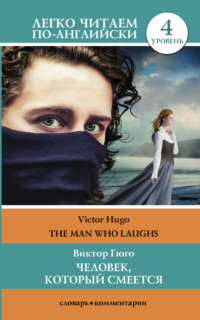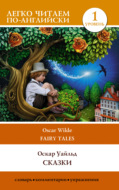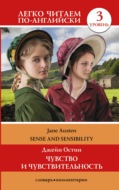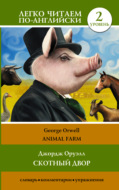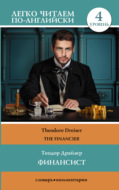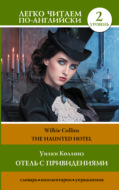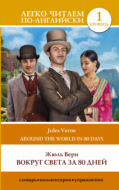Kitobni o'qish: «Человек, который смеется / The Man Who Laughs. Уровень 4»
© Матвеев С.А., 2022
© ООО «Издательство АСТ», 2022
Victor Hugo
The Man Who Laughs
URSUS
I
Ursus and Homo were friends. Ursus was a man, Homo a wolf. It was the man who had christened the wolf: probably he had also chosen his own name. Man and wolf were partners at fairs, at village holidays, at the corners of streets, where people were ready to listen to idle gossip and to buyquack medicine1. The wolf, gentle and courteously subordinate, diverted the crowd. It is a pleasant thing to behold the tameness of animals. Our greatest delight is to see all the varieties of domestication parade before us. This it is which collects so many folks on the road of royal processions.
Ursus and Homo went about from cross-road to cross-road, from country-side to country-side, from shire to shire, from town to town. One market exhausted, they went on to another. Ursus lived in a small van upon wheels, which Homo drew by day and guarded by night. On bad roads, up hills, and where there were too many ruts, or there was too much mud, the man pulled fraternally, side by side with the wolf. They had thus grown old together.
They encamped in the wood, on the waste patch of grass where roads intersect, at the outskirts of villages, at the gates of towns, in market-places, in public walks, on the borders of parks, before the entrances of churches. When the cart drew up on a fair, the curious made a circle round the pair, Ursus harangued and Homo approved. Homo, with a bowl in his mouth, politely made a collection among the audience. They gained their livelihood. The wolf was lettered, likewise the man. The wolf had been trained by the man, or had trained himself, to divers wolfish arts, which swelled the receipts.
“Above all things, do not degenerate into a man,” his friend used to say.
The wolf never bit: the man didnow and then2. At least, to bite was the intent of Ursus. He was a misanthrope, and to italicize his misanthropy he had made himself a juggler. To live, also; for the stomach demanded something. Moreover, this juggler-misanthrope was a doctor. To be a doctor is little: Ursus was a ventriloquist. You heard him speak without his moving his lips. He counterfeited anyone’s accent or pronunciation. He imitated voices so exactly that you believed you heard the people themselves. All alone he simulated the murmur of a crowd, and this gave him a right to the title of Engastrimythos3, which he took. He reproduced all sorts of cries of birds, as of the thrush, the wren, the pipit lark, otherwise called the gray cheeper, all travellers like himself. At times, he made you aware either of a public thoroughfare filled with the uproar of men, or of a meadow loud with the voices of beasts – at one time stormy as a multitude, at another fresh and serene as the dawn. Such gifts, although rare, exist. In the last century a man called Touzel, who imitated the mingled utterances of men and animals, and who counterfeited all the cries of beasts, was attached to the person of Buffon4 – to serve as a menagerie.
Ursus was sagacious, contradictory, odd, and inclined to the fables. He read people’s hands, opened books at random and drew conclusions, told fortunes, taught that it is perilous to meet a black mare, still more perilous, as you start for a journey, to hear yourself accosted by one who knows not whither you are going; and he called himself a dealer in superstitions. He used to say:
“There is one difference between me and the Archbishop of Canterbury: I avow what I am.”
Hence the archbishop was justly indignant. But Ursus cleverly disarmed his grace by reciting a sermon he had composed upon Christmas Day. The archbishop pardoned Ursus.
As a doctor, Ursus wrought cures by some means or other. He used the hazel, the catkin, the white alder, the white bryony, the mealy-tree, the traveller’s joy, the buckthorn. He treated phthisis with the sundew. He cured sore throat by means of the vegetable excrescence called Jew’s ear. He knew the rush which cures the ox and the mint which cures the horse. He was well acquainted with the beauties and virtues of the herb mandragora. He had many recipes. He cured burns with the salamander wool. Ursus possessed a retort and a flask; he effected transmutations; he sold panaceas. He had once been for a short time in Bedlam; they had set him free because he was only a poet. This story was probably not true.
The fact is, Ursus was a savant, a man of taste, and a poet. He could compose Jesuit tragedies. He had peculiar figures of speech, and a whole family of classical metaphors. So much knowledge could only end in starvation. The school of Salerno says, “Eat little and often.” Ursus ate little and seldom.
Ursus used to say: “The wolf is comforted by its howl, the sheep by its wool, the forest by its finch, woman by her love, and the philosopher by his epiphonema.”
Ursus composed comedies, which he all acted; this helped to sell the drugs. Among other works, he composed a pastoral in honour of Sir Hugh Middleton.
Ursus was great in soliloquy. He was unsociable and talkative, desiring to see no one, yet wishing to converse with someone. So he talked to himself. It was, as is well known, a custom of Socrates; he declaimed to himself. Luther did the same. Ursus questioned himself, answered himself, praised himself, blamed himself. You heard him in the street soliloquizing in his van. The passers-by used to say: “He is an idiot.”
Fortunately Ursus had never gone into theLow Countries5. There they could certainly weigh him, to ascertain whether he was a sorcerer or not. Nothing was simpler or more ingenious. It was a clear test. They put you in a scale. Too heavy, you were hanged; too light, you were burned. The scales in which sorcerers were weighed are now used for weighing cheeses; how religion has degenerated! In his travels Ursus kept away from Holland, and he did well. Indeed, we believe that he never left the United Kingdom.
However he was very poor and morose. He had taken the wolf into partnership, and with him had gone forth on the highways, living in the open air. He had great skill in everything connected with healing operations, restoring the sick to health. He was considered a clever mountebank and a good doctor. To tell the truth, Ursus was suspicious, because he often went to gather herbs in rough thickets. But Ursus, although eccentric in manner and disposition, was too good to invoke or disperse hail, to kill a man with the torment of excessive dancing, and to cause the birth of cocks with four wings. He was incapable of certain abominations, such as, for instance, speaking German, Hebrew, or Greek. If Ursus spoke Latin, it was because he knew it.
Bepul matn qismi tugad.
